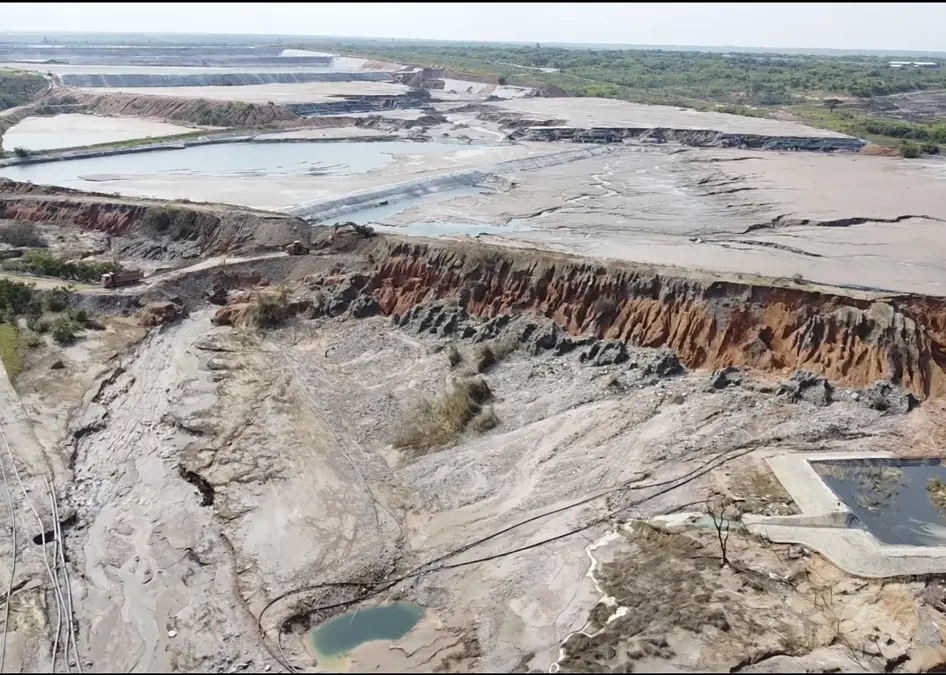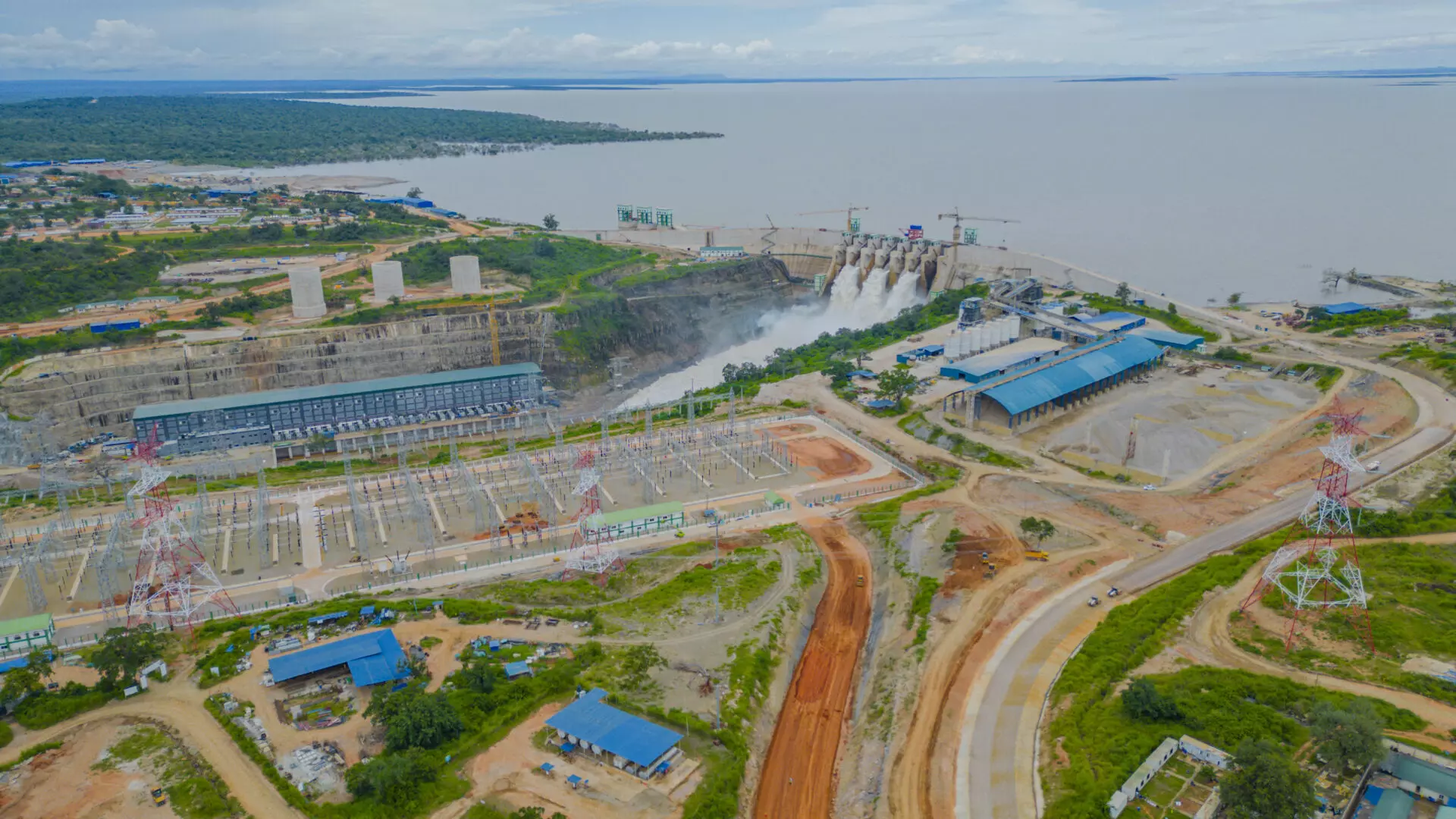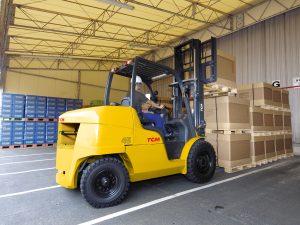Tech draws M&A attention from big miners in rush for copper
Highland Valley Copper operations, British Columbia, Canada. (Image courtesy of Teck’s sustainability report 2022.)
The world’s biggest miners are back in serious dealmaking mode and Teck Resources Ltd. is taking center stage.
The Canadian miner, which has exited its coal business with a sale this month to Glencore Plc, is drawing attention from across the industry because of its attractive copper assets, as the biggest names position for the next wave of activity in the wake of BHP Group’s failed bid for Anglo American Plc.
Teck is seen as a logical merger partner in particular for Anglo American or Vale SA’s base-metals business, both of which have studied the specifics of a potential deal internally, according to executives, advisers and bankers familiar with the companies’ thinking. Larger rivals including BHP, Rio Tinto Group and Freeport-McMoRan Inc. are also watching Teck closely and could be in a position to respond if another player made the first move.
Teck shares rose as much as 6.1% in Toronto.
There’s no certainty that any of the companies will ultimately make an offer for Teck, and any potential transaction could face significant hurdles. The company is still controlled by its founding family, which successfully opposed an unsolicited bid last year from Glencore. And stringent new guidance restricting foreign takeovers in Canada has raised questions over whether a deal is even possible.
While it’s not clear whether Teck’s management or family patriarch Norman Keevil are looking to do a deal, the company has indicated privately that it has at least considered the merits of a combination with a rival, some of the people said.
And for the world’s biggest miners, the appeal is evident. Across the industry, many of the largest players still depend too heavily on fossil-fuel-heavy commodities such as coal and iron ore, while investors are looking for exposure to copper, the crucial metal needed to decarbonize the global economy. The sale of its coal business has repositioned Teck to focus on copper and zinc, and the company’s Quebrada Blanca 2 operation in Chile is one of the world’s newest and biggest copper mines.
Representatives from Teck, Anglo, Vale, BHP, Rio and Glencore declined to comment. Freeport didn’t respond to a request for comment.
The buzz around Teck comes against the backdrop of a wider revival of dealmaking in the global mining industry, after the biggest names spent most of the previous decade sitting on the sidelines. Glencore got the ball rolling last year when it took a run at Teck in a bid to bulk up its copper business, before BHP tried to buy Anglo earlier this year in a $49 billion deal. While both attempts came up short, the message was clear: the biggest names, with the biggest balance sheets, are out looking for deals.
Among the potential bidders or partners for Teck, Vale’s copper and nickel business is seen as a possible frontrunner, and executives from the company have expressed confidence in their ability to do a deal, according to people with knowledge of the conversations.
Vale, the world’s second-biggest iron ore miner, created a standalone company for its base-metals division last year and sold a 10% stake to Saudi Arabia as part of a plan to unlock value for the unit. Vale has said it is considering further options that could include an initial public offering for the business, which has some of its biggest operations in Canada.
Vale Base Metals is currently studying options for a potential deal with Teck and would likely get the support of its Saudi backers, according to people familiar with the matter. However, any final decision would probably need to wait until the parent company has concluded its search for a new CEO later this year, one of the people said.
Teck itself has also considered the merits of a deal with Vale Base Metals, another one of the people said. Still, while a Vale deal would help cement Teck as a Canadian mining champion, something that would likely win government backing, Vale’s nickel-heavy portfolio would potentially be less attractive to investors as prices have plunged in response to a global oversupply.
Executives at Anglo American also see the logic of a combination. Like Teck, Anglo has recently survived an attempted takeover, but was forced to break itself up as part of the process. The company is currently looking to exit coal mining — as well as platinum and diamonds — focus on copper and iron ore.
Once that process is completed, Anglo will be an even more attractive target for its bigger rivals, but combining with Teck would potentially put both companies beyond the reach of potential predators.
Anglo’s banks had already been tasked with studying a potential merger with Teck before BHP’s approach and the company’s management are still keen on the idea, according to people familiar with the matter. Executives see Anglo as having a closer cultural fit with Teck than rivals such as BHP. However, the miner will probably first need to progress further with its own restructuring plan, the people said.
At the top of the industry, both BHP and Rio Tinto are keeping tabs on Teck. In Rio’s case, the company’s executives were jolted by BHP’s bid for Anglo and the way in which such a deal would transform the sector, creating a behemoth that would dwarf everyone else.
The company’s business development team has since been running the numbers on potential targets, including Teck, according to people familiar with the matter. The work has been commissioned by the company’s senior leaders, although it remains at an early stage and overall Rio Tinto is still wary of large deals, the people said.
As for BHP, its interest in a big transaction to grow in copper is clear. Teck is not at the top of its list, but the company is aware that a new dealmaking wave could see its prime targets like Anglo snapped up by others.
Freeport-McMoRan, the biggest US miner, is also keeping a close watch on Teck. While the company has been historically averse to large M&A, its strong share price gives it a favorable currency to pursue a transaction of this scale.
Glencore, which unsuccessfully bid for Teck last year, is predominantly interested in Teck’s flagship Quebrada Blanca 2 mine. Glencore and Anglo both own 44% stakes in the neighboring Collahuasi operation, which could offer opportunities to increase production and profits by combining the two operations — whether or not such a move involved a full merger or takeover. Glencore CEO Gary Nagle has talked in the past about the potential synergies between the two mines. Glencore currently has a standstill agreement with Teck, although it would lapse if another party made a bid for the company.
Any takeover of Teck would face close scrutiny by Canadian Prime Minister Justin Trudeau’s government, which is facing an election next year and has expressed reluctance to let foreign firms take out the country’s biggest mining firms, citing the strategic importance of owning the metals they produce.
Industry Minister Francois-Philippe Champagne said earlier this month that Canada will now only approve foreign takeovers of its biggest miners “in the most exceptional of circumstances.” Executives and bankers in the industry widely believe the new guidance was intended to protect Teck, which counts itself among the last big Canadian mining firms. The opposition Conservative Party has also expressed opposition toward foreign buyers of mineral companies and criticized the government for approving Teck’s coal sale to Glencore.
(By Jacob Lorinc, Mariana Durao, Dinesh Nair and Thomas Biesheuvel)
Share this content:














